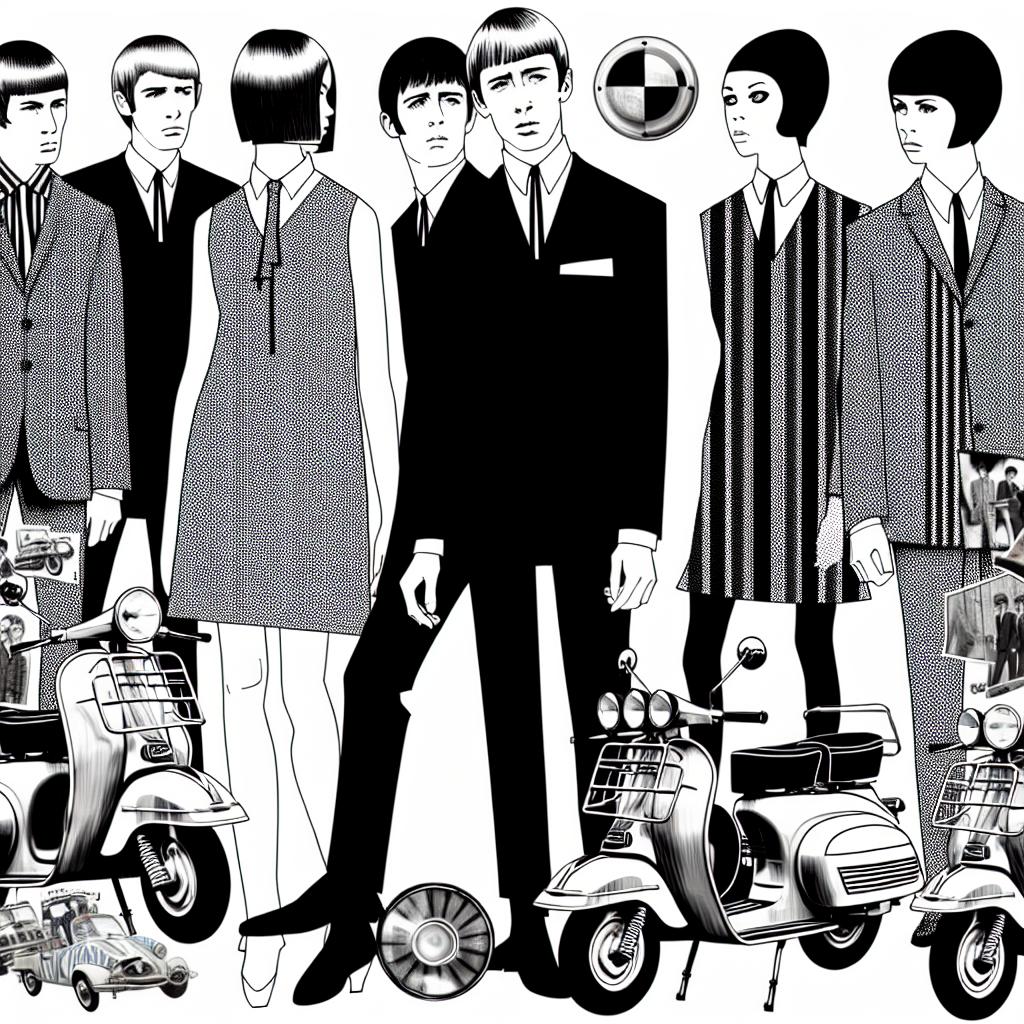The Who and the Mod Movement
In the transformative period of the 1960s, the United Kingdom witnessed a cultural revolution that saw the emergence of several influential subcultures. At the forefront of this upheaval was the Mod subculture, a dynamic youth movement that left an indelible mark on fashion, music, and lifestyle. Integral to the Mod identity was its musical expression, with The Who standing out as the defining force in embodying the Mod ethos.
Origins of the Mod Subculture
The roots of the Mod subculture can be traced back to London in the late 1950s. This movement gained momentum and achieved a significant presence during the 1960s. Mods, short for ‘Modernists’, were distinguished by their commitment to a modern lifestyle, reflected in their love for certain music genres and distinctive fashion choices. Delving into music, Mods favored modern jazz, soul, and rhythm and blues. Their sartorial preferences included sharply tailored suits and parka jackets, drawing inspiration from Italian and French fashion houses. This meticulous fashion sense was not merely about appearances; it was an expression of their modernist values—progressive, sleek, and sophisticated.
The Who’s Emergence
In 1964, The Who burst onto the music scene with a lineup that included Roger Daltrey, Pete Townshend, John Entwistle, and Keith Moon. The band quickly ascended to fame, mainly due to their blistering live performances that perfectly captured the restless spirit of the youth in that era. The Who crafted a sound that blended rock, pop, and rhythm and blues elements, creating a musical tapestry that resonated with the Mod audience.
Musical Influence
The Who’s musical contributions were instrumental in defining the Mod movement’s auditory landscape. Notable tracks like “My Generation“, “The Kids Are Alright“, and “Substitute” were more than songs; they were anthems that encapsulated the rebellious essence of the Mods. These songs, characterized by their energetic and innovative sound, resonated with the underlying desire of a generation seeking to carve out its identity away from the shadow of previous generations. The influence of these tracks is still felt today, as they continue to inspire both listeners and performers.
Live Performances and Style
The Who’s live performances were nothing short of legendary. Known for their raw and energetic stage presence, the band often featured dramatic flourishes, such as the ritualistic destruction of instruments by guitarist Pete Townshend. This audacious approach to performances was emblematic of the Mod’s spirit—bold, innovative, and unafraid to challenge the status quo. In addition to their live act, The Who’s fashion sense was intrinsic to their identity as Mod icons. Their sharp, stylish attire was not merely a superficial statement but rather a part of their broader cultural posture, reinforcing their role as leaders of the Mod subculture.
Impact on the Mod Movement
The impact of The Who on the Mod movement was far-reaching and multifaceted. Through their music, distinctive style, and attitude, they became symbols of Mod ideals such as youth empowerment and modernity. The influence of The Who extended past their music; they set new standards in fashion, behavior, and lifestyle that were avidly followed by their fans and imitators.
Cultural Legacy
The cultural legacy of The Who in connection with the Mods remains significant even today. While the original wave of the Mod movement diminished by the late 1960s, its cultural elements have experienced numerous revivals over the decades. Even as trends shifted, The Who consistently served as a powerful symbol of the original Mod spirit. Their work, both past and present, continues to resonate with generations identifying with the freedom and creativity represented by the Mod movement.
For those interested in delving deeper into The Who’s journey and their profound impact on the Mod subculture, a wealth of resources are available. Music history texts, documentaries, and archival footage provide a broader understanding of how The Who not only shaped but also became an inseparable part of the Mod narrative. Exploring these resources offers a richer appreciation of how one band embodied the ethos of an entire cultural movement, influencing everything from fashion to attitudes and, most importantly, music. Through their extensive discography and enduring public presence, The Who continues to inspire music lovers and cultural historians alike, ensuring the spirit of the Mods remains alive and influential.
